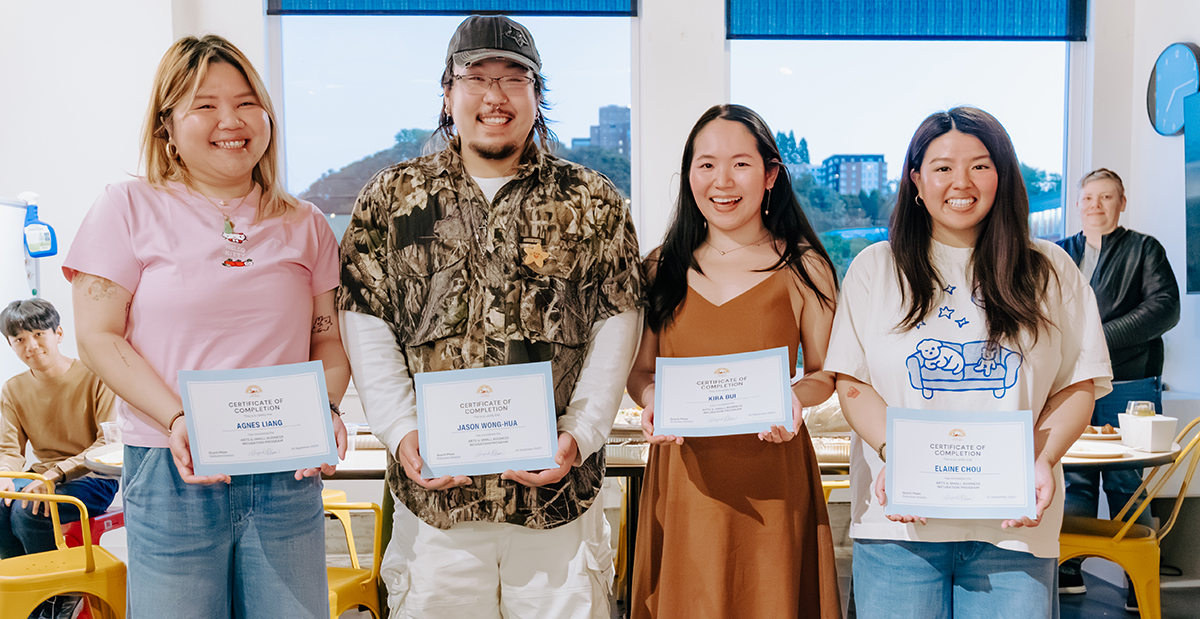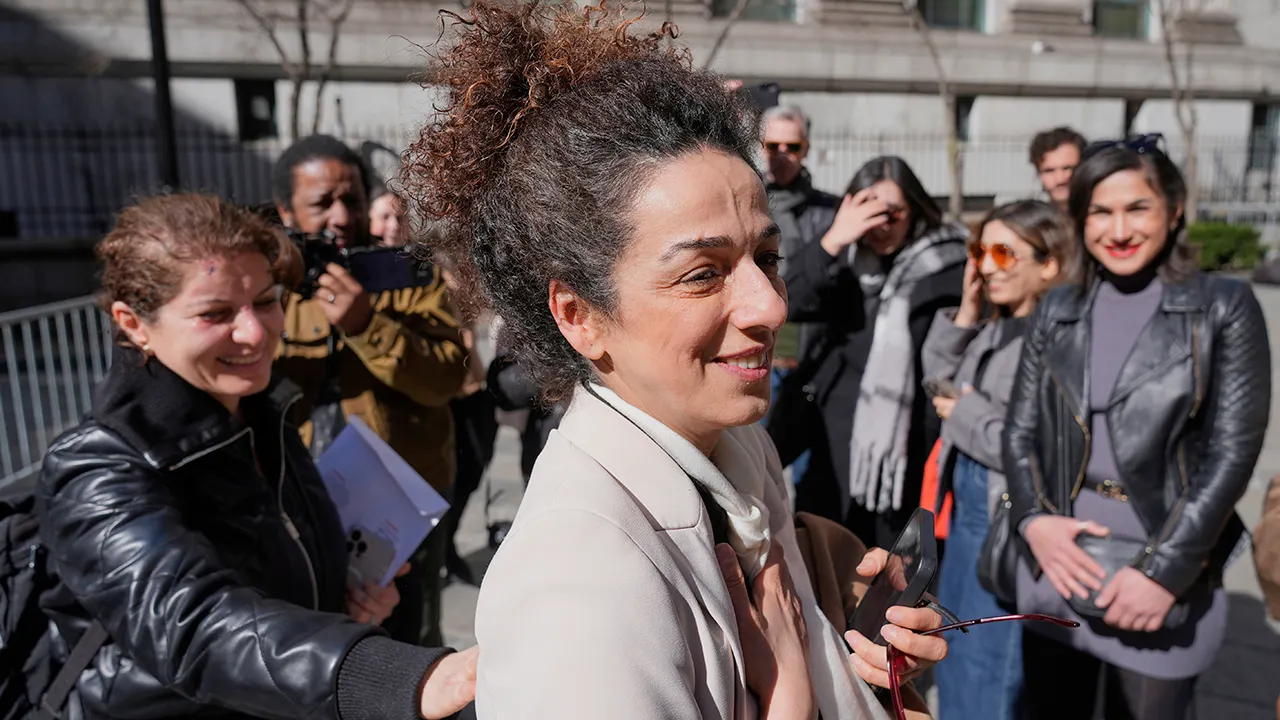Copyright nwasianweekly

By Carolyn Bick NORTHWEST ASIAN WEEKLY For years, Jason Wong-Hua had searched for his favorite flavors—like black sesame and sweet adzuki bean—incorporated into baked goods. But he couldn’t. So, instead, with the help of Friends of Little Sài Gòn (FLS)’s new small business incubator pilot program, in July, Wong-Hua decided to open his own business, an Asian-inspired bakery dubbed Ugly’s Bakery, which sells cookies that highlight flavors inspired by Wong-Hua’s personal experiences and upbringing. (The name, Wong-Hua said, is a hat-tip to his “beloved cat, Ugly,” who serves as Cat Executive Officer [CEO].) Wong-Hua was one of the four small business owners included in the first cohort of this new program. He said he first linked up with FLS and the program, after FLS had been in contact to help out with his family’s business, Spring Roll House, out of which Wong-Hua now also operates his cookie business. It’s through these kinds of relationships that the small business incubator pilot program began. FLS first conceived of the program following several years of hosting pop-up vendor events at Little Saigon Creative, which opened in 2020. Anh Nguyen, the arts and culture program manager for FLS, said that space is “a cultural gathering place, and it’s our experiment of what a cultural center could look like in the neighborhood.” “After the place opened, we wanted to support more arts and cultural programming in the neighborhood, and so we started having art exhibits and hosting markets for small businesses,” Pham said. “That’s when we started inviting our network of artists and vendors to come back and host pop-ups with us. And through these pop-ups that we’ve hosted over the years as part of our own markets and the vendors’ own markets, we learned that a lot of vendors who are new to selling their products face barriers when they’re trying to enter a market.” The fees vendors face can be astronomical, Nguyen said, which creates major barriers to entry into what could be profitable pop-up markets. FLS’s low-barrier pop-up program allows small business owners to bypass this, and allow them to sell their wares to new audiences. But these barriers don’t just stop at the tent flaps of a pop-up market—and for vendors who want to “level up” to brick-and-mortar stores, FLS’s Community Engagement Manager Andy Pham said, these hurdles can feel insurmountable. Pham said that while FLS supports small businesses through several other crucial offerings, like referral services and grant applications, opening a brick-and-mortar store is complicated and requires more intensive assistance. Among other issues, business owners have to contend with gentrification in the Chinatown-International District (CID), as well as the maintenance problems that come with leasing properties that may have stood vacant for a while. So, through existing relationships with the small business owners who participate in the organization’s small business pop-up program at Little Saigon Creative, FLS decided to test out an incubation program that helps vendors who want to “level up” their business, and put them on the path to a brick-and-mortar store. Pham said that FLS recruited four different vendors to participate in the 10-week program. They matched each vendor with an established neighborhood business owner. The goal of the program was to simply run a test—what would such a program, tailored specifically for the CID, look and feel like? “We really tried to focus on, ‘What is your story? Send us your business plan. What are some of your needs?’” Pham said. “We wanted this incubation program to have a mentorship model since … [it is important to have] relationships with each other, too, to lean on each other throughout this very arduous and technical process where you need, sometimes, a morale boost. It can be really scary due to this giant risk.” The pairs talked about everything from business planning to commercial spaces and leasing to branding and marketing, Pham said, meeting for a total of 10 hours. The vendors also attended five hour-long FLS workshops every other week throughout the course of the program. FLS received support from Seattle’s Office of Economic Development Accounting and Business Consulting Program and the Seattle Public Library’s Library to Business Program, as well as JP Morgan Chase, which gave one of the finances and capital talks, during the program. Wong-Hua was paired with Torrey Le, the owner of Crawfish King. He said Le “taught me a lot through stories of his own experiences.” “Not only did I take home some practical knowledge about running a business, such as which licenses to apply for or how to calculate product prices, but I was also given some real advice,” Wong-Hua said. “Running a business is not for the faint of heart and Torrey shared with me that it takes a tremendous amount of passion, determination, and consistency in order to be able to run a business successfully. This inspired me to really think about what I am passionate about and what I’m willing to sacrifice to get to where I want.” Pham said that this also strengthens the fabric of the CID community, and that he could personally already see tears beginning to mend when, during the course of the program, other established business owners would ask what was going on and express an interest in being part of the mentor pool in the future. “I think there’s a big need for this type of energy and this uplifting mindset away from the negative of all the public safety things, [and] there’s a really strong community here,” Pham said. “There’s a lot of knowledge that is willing to be shared. There’s folks that are willing to invest. So we can have that bridge for all of that.” Nguyen said that the “dream goal” for the program would be to have every mentee open a brick-and-mortar store, but that’s not always feasible, especially with physical products. Over the years, she said, online sales and e-commerce have exploded. “So something else that we hope is through building this connection with our mentees, our mentors, it helps them feel invested in the neighborhood,” she said. “Hopefully, it encourages our small businesses to keep hosting pop-ups here, come back to the neighborhood to purchase ingredients and be involved with the preservation of Little Saigon.” Wong-Hua said that in addition to the incubator program jumpstarting his business by connecting him with a network of business professionals and resources he “never knew existed,” the program allowed him to start thinking in a concrete way about what his future operations could look like. “Currently,” he said, “I only make cookies, but some exciting future plans for my business include expanding my menu and creating boxed cakes and brownies (with new and interesting flavors of course!).”



